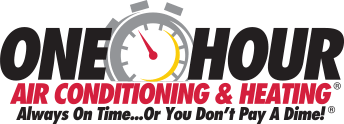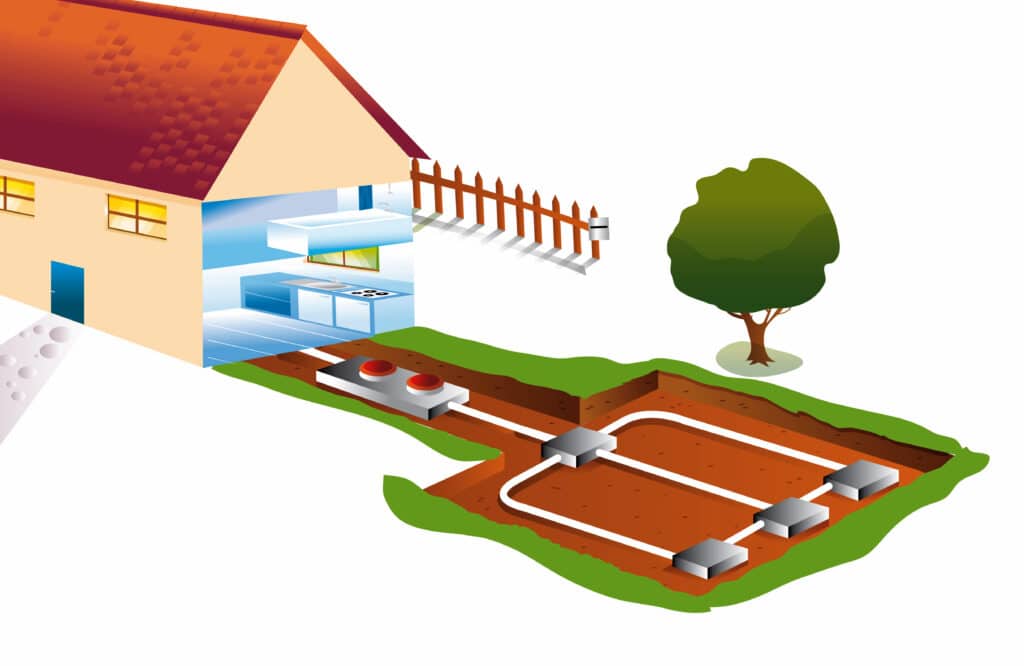
Unlock Comfort: The Ultimate Guide to Residential HVAC Plans
Have you ever wondered how a residential HVAC plan can transform your home’s comfort and energy efficiency? You’re not alone.
Many homeowners seek to understand how these systems work to provide a comfortable living environment throughout the year.
In this article, we delve into the world of residential HVAC plans, offering you a thorough understanding of how they can enhance your home’s comfort and efficiency.
We’ll explore the essentials of HVAC system design, installation, maintenance, and much more, providing you with the knowledge you need to make informed decisions about your home’s heating and cooling.
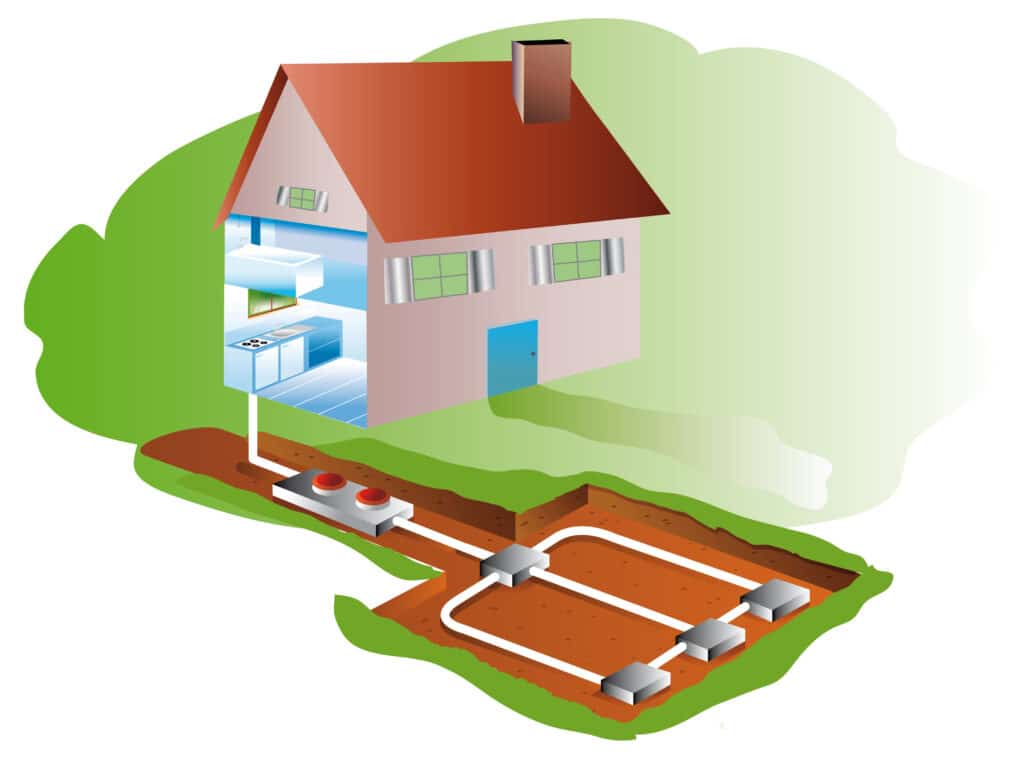
A Detailed Explanation of Residential HVAC Plans
When it comes to residential HVAC plans, understanding the basics is crucial. These plans are designed to ensure that your home’s heating, ventilation, and air conditioning systems are tailored to your specific needs, providing optimal comfort and efficiency.

What is a residential HVAC plan?
A residential HVAC plan is not just a blueprint; it’s a roadmap to ensuring your home’s climate control is tailored to your unique living space, providing optimal comfort and efficiency year-round. This plan encompasses a detailed strategy for the design, installation, maintenance, and optimization of your home’s heating, ventilation, and air conditioning (HVAC) systems.
When designing a residential HVAC plan, experts consider various factors, including the size of your home, its layout, insulation levels, and even the local climate. This meticulous approach ensures that the HVAC system design is perfectly aligned with your home’s characteristics, ensuring efficient heating and cooling distribution.
Installation is a critical phase where precision is paramount. A correctly installed HVAC system operates more efficiently, which translates to energy savings and a longer lifespan for your equipment. It’s about placing each component strategically to ensure the entire system works in harmony, from HVAC ductwork design to the positioning of thermostats.
Maintenance is the ongoing chapter of your HVAC plan. Regular check-ups and tune-ups extend the life of your system, prevent unexpected breakdowns, and keep it running at peak efficiency. This includes everything from changing filters to professional inspections and cleaning of ducts, ensuring your system remains a reliable source of comfort.
Moreover, a residential HVAC plan is your guide to making informed decisions about upgrades and energy-efficient solutions. Whether it’s integrating smart HVAC technology, selecting eco-friendly HVAC options, or considering HVAC zoning for residential spaces, your plan should adapt to evolving technologies and your changing needs.
A residential HVAC plan is your home’s comfort blueprint. It’s a dynamic, comprehensive strategy that not only addresses your immediate comfort needs but also anticipates future adjustments, ensuring your home remains a haven of comfort and efficiency for years to come.
Understanding HVAC System Design
Tailoring to Your Home’s Needs
The design of your HVAC system is foundational to its success in providing comfort and efficiency.
A well-thought-out HVAC system design considers the unique aspects of your home, such as its size, layout, insulation quality, and even the number of windows. These factors are crucial in determining the capacity and type of system that will best serve your needs, ensuring that the residential HVAC plan is customized for your living space.
Ensuring Even Temperature Distribution
One of the primary goals of a robust HVAC system design is to achieve even temperature distribution throughout your home. This involves strategic placement of ductwork, vents, and HVAC units to ensure that every room is heated or cooled effectively, eliminating hot or cold spots.
This level of precision in the HVAC ductwork design not only enhances comfort but also contributes to the overall energy efficiency of your home, as the system doesn’t have to overwork to compensate for uneven temperatures.
Maintaining Indoor Air Quality
Indoor air quality is a critical component of your residential HVAC plan. A well-designed HVAC system will include solutions for filtering and purifying the air, which is essential for the health and well-being of your household.
This might involve choosing the right filters, considering home ventilation systems, or integrating air purification systems to reduce pollutants, allergens, and other airborne contaminants.
Optimizing for Efficiency
The efficiency of your HVAC system is significantly influenced by its design. An optimized system uses less energy to heat or cool your home, leading to lower utility bills and a reduced environmental impact.
This includes selecting energy-efficient units, like those offering energy-efficient HVAC solutions, and designing the system to minimize energy loss. For instance, proper insulation and sealing of ductwork can prevent energy wastage, making your residential HVAC plan not only effective but also eco-friendly.
Future-Proofing Your System
A forward-thinking HVAC system design also considers future needs and potential upgrades. This might involve preparing the infrastructure for smart HVAC technology, which can offer enhanced control and efficiency, or designing the system to be adaptable to future HVAC upgrade options.
By anticipating these needs, your HVAC system remains adaptable, ensuring it can evolve with advancements in technology and changes in your living environment.
Understanding the intricacies of HVAC system design is crucial for any homeowner looking to create a comfortable, efficient, and healthy living space. By focusing on these key aspects, your residential HVAC plan becomes a cornerstone of your home’s functionality and comfort, now and in the future.
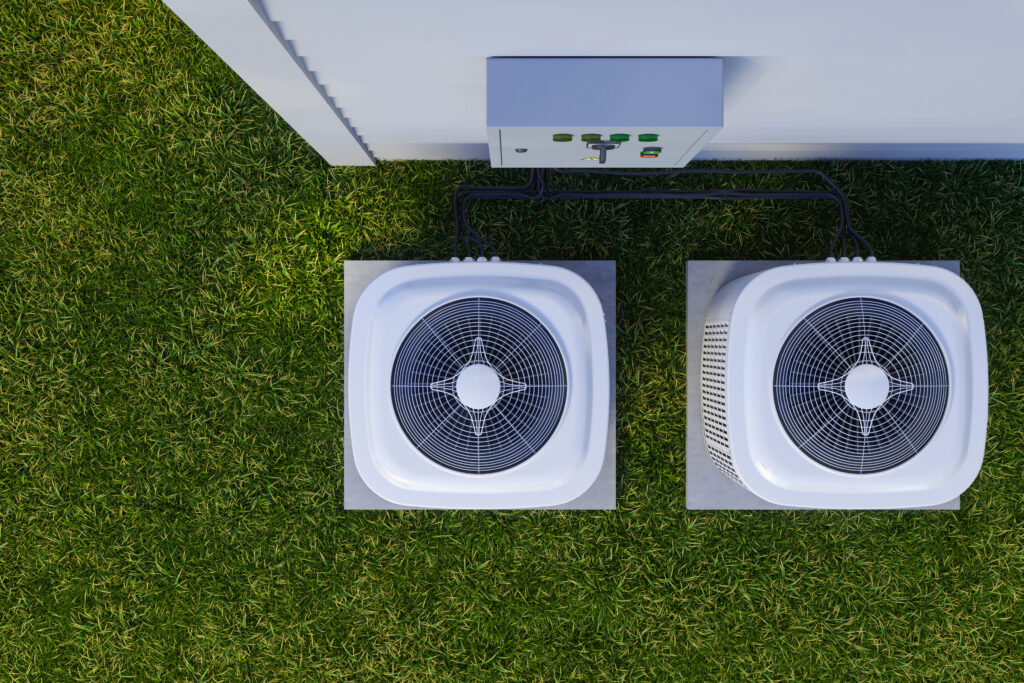
The Importance of Proper Installation
Ensuring Peak Efficiency
Proper installation is a cornerstone of effective residential HVAC plans. When your HVAC system is installed correctly, it operates at its designed efficiency, which is crucial for minimizing energy consumption and reducing utility bills.
An HVAC system that’s installed with precision will align with the manufacturer’s specifications, ensuring that it delivers the performance it’s engineered to provide. This includes optimal home heating and cooling, as well as air conditioning installation that adheres to the highest standards.
Preventing Common Issues
A well-executed installation process mitigates the risk of common HVAC problems. Issues such as improper unit sizing, faulty wiring, or incorrect ductwork can lead to inefficient system operation, increased wear and tear, and even safety hazards.
By prioritizing proper installation, you’re not just ensuring that your system works correctly from the start, but you’re also helping to prevent future problems that could lead to costly repairs or system failures.
Extending System Lifespan
The longevity of your HVAC system is directly influenced by the quality of its installation. A system that’s installed with attention to detail and adherence to best practices is less likely to suffer from premature breakdowns.
Proper installation helps to avoid unnecessary strain on your system, ensuring that each component functions as intended and contributes to the overall durability and reliability of your residential HVAC plan.
Importance of Professional Expertise
Engaging with experienced residential HVAC contractors for the installation process is vital. These professionals have the knowledge and skills to install your system correctly, taking into account all the nuances of your specific setup.
They ensure that every aspect of the installation, from HVAC ductwork design to the final system calibration, is executed with precision. This professional touch not only guarantees the system’s performance but also ensures that your warranty remains valid.
Compliance with Regulations and Standards
Proper HVAC installation also means adhering to local building codes and industry standards, which are in place to ensure safety and efficiency. Professional installers are well-versed in these requirements, ensuring that your system is not only efficient but also compliant with all regulatory standards. This adherence is crucial for both the safety of your household and the legal compliance of your residential HVAC plan.
The importance of proper installation in your residential HVAC plan cannot be overstated. It’s a critical factor that affects the system’s efficiency, reliability, and longevity.
By ensuring that your HVAC system is installed correctly, you’re setting the stage for optimal performance and comfort in your home, while also safeguarding your investment in your home’s heating and cooling infrastructure.
Regular Maintenance: A Key to Longevity
Routine Checks: The First Line of Defense
Regular maintenance is the lifeblood of a durable and efficient HVAC system, forming a critical component of any residential HVAC plan.
Routine checks act as a first line of defense, identifying potential issues before they escalate into major problems. These checks encompass a thorough examination of all system components, including HVAC maintenance tips like inspecting filters, checking refrigerant levels, and ensuring that all mechanical parts are in good working order.
By catching issues early, you can prevent the kind of damage that shortens your system’s lifespan and leads to costly repairs.
Cleaning: Essential for Efficiency and Air Quality
Cleaning is another pillar of effective HVAC maintenance. Over time, components like coils and filters can accumulate dust and debris, which can significantly impact the system’s efficiency.
For instance, a dirty filter can restrict airflow, forcing the system to work harder, which in turn increases energy consumption and reduces the system’s overall efficiency.
Regular cleaning, as part of your residential HVAC plan, ensures that your system operates at peak efficiency while also contributing to better indoor air quality, a crucial aspect of indoor air quality improvement.
Necessary Repairs: Addressing Issues Promptly
When maintenance checks reveal issues, addressing them promptly is key to preventing more significant problems down the line. This proactive approach to repairs can extend the life of your HVAC system significantly.
Whether it’s a minor issue like a belt replacement or a more significant concern like fixing a leak, timely repairs ensure that your system continues to operate effectively, providing reliable home heating and cooling without unexpected interruptions.
The Role of Professional Maintenance Services
While some aspects of HVAC maintenance can be handled by homeowners, such as changing filters, other tasks require professional expertise.
Engaging residential HVAC contractors for regular maintenance ensures that your system receives a comprehensive check-up and that any necessary repairs are carried out correctly. These professionals bring a depth of knowledge and experience, offering HVAC system troubleshooting and maintenance services that keep your system running smoothly and efficiently.
Long-Term Benefits of Regular Maintenance
The long-term benefits of regular HVAC maintenance are manifold. Beyond extending the lifespan of your system, regular maintenance contributes to consistent comfort levels in your home, prevents unexpected breakdowns, and can lead to significant savings on energy bills.
A well-maintained system is an efficient system, and in the context of a residential HVAC plan, efficiency translates to cost savings and environmental benefits, aligning with eco-friendly HVAC options.
Regular maintenance is a cornerstone of any effective residential HVAC plan. It ensures that your system remains reliable, efficient, and effective in providing comfort to your home.
By committing to a schedule of routine checks, cleaning, and timely repairs, you can enjoy the benefits of an HVAC system that performs optimally throughout its extended lifespan.
Energy-Efficient Solutions and Upgrades
Embracing Energy-Efficient HVAC Systems
In the realm of residential HVAC plans, the shift toward energy efficiency is not just a trend but a necessity. Upgrading to an energy-efficient HVAC system is a transformative step that can drastically reduce your home’s energy consumption.
These modern systems are designed to provide optimal home heating and cooling with a fraction of the energy used by older models.
By choosing units with high SEER (Seasonal Energy Efficiency Ratio) and EER (Energy Efficiency Ratio) ratings, homeowners can enjoy significant reductions in their utility bills while also contributing to environmental conservation.
Implementing Energy-Saving Measures
Beyond system upgrades, integrating energy-saving measures into your residential HVAC plan can further enhance efficiency. This includes practices like improving home insulation, sealing leaks, and using programmable thermostats.
Such measures complement your HVAC system, reducing the workload and thereby extending its lifespan.
For instance, better insulation means less heat loss in winter and less heat ingress in summer, allowing your HVAC system to maintain comfortable temperatures more effortlessly.
The Role of Smart HVAC Technology
The integration of smart HVAC technology into residential systems offers a new frontier in energy efficiency.
Smart thermostats and HVAC controls allow homeowners to optimize their heating and cooling schedules based on their habits and preferences, reducing energy waste. These technologies provide real-time insights into energy consumption, enabling users to make informed decisions about their usage patterns.
Moreover, smart systems can detect inefficiencies and alert homeowners to potential issues, ensuring that the system maintains its energy-efficient operation over time.
Benefits of Regular Energy Audits
Conducting regular energy audits is a proactive approach to maintaining energy efficiency in your residential HVAC plan. These audits can identify areas where energy is being wasted and recommend improvements.
Whether it’s upgrading to energy-efficient HVAC solutions or tweaking existing systems for better performance, energy audits provide a roadmap for reducing consumption and enhancing the overall efficiency of your home’s HVAC system.
Long-Term Impact of Energy Efficiency
The long-term benefits of focusing on energy efficiency in your HVAC system are substantial. Not only do these measures lead to lower utility bills, but they also contribute to a smaller carbon footprint, aligning with eco-friendly HVAC options.
Energy-efficient systems and practices ensure that your home remains comfortable without exerting unnecessary strain on the environment or your finances.
integrating energy-efficient solutions and upgrades into your residential HVAC plan is a wise investment in the future of your home. By adopting advanced systems and energy-saving measures, homeowners can enjoy enhanced comfort, reduced energy bills, and the satisfaction of contributing to a more sustainable world.
Indoor Air Quality and Your Health
The Significance of Indoor Air Quality
Indoor air quality is a pivotal component of residential HVAC plans, directly impacting the health and well-being of residents.
A well-designed and maintained HVAC system plays a vital role in filtering out pollutants, allergens, and other airborne contaminants, ensuring that the air you breathe inside your home is clean and healthy.
Given that individuals spend a considerable amount of time indoors, the significance of maintaining superior indoor air quality cannot be overstated.
HVAC’s Role in Air Quality Enhancement
Your HVAC system is at the forefront of controlling indoor air quality. Through its filtration system, it captures and removes particles and pollutants from the air, preventing them from circulating throughout your home.
Upgrading to high-efficiency particulate air (HEPA) filters or adding air purifiers as part of your residential HVAC plan can further enhance this filtration process, especially crucial for households with allergy sufferers or respiratory issues.
Reducing Allergens and Pollutants
A key aspect of improving indoor air quality is the reduction of allergens and pollutants.
Regular maintenance of your HVAC system, including timely filter changes and duct cleaning, can significantly minimize the presence of dust, pollen, pet dander, and other common allergens. This proactive approach not only contributes to a cleaner living environment but also reduces the risk of allergy and asthma symptoms among residents.
Ventilation: A Critical Factor
Proper ventilation is another critical factor in maintaining healthy indoor air quality.
Ensuring that your HVAC system includes adequate home ventilation systems helps to expel stale air and introduce fresh, clean air into your home. This circulation is essential for diluting and removing indoor airborne contaminants, further enhancing the overall air quality within your living spaces.
Monitoring and Improving Air Quality
Incorporating air quality monitors into your residential HVAC plan can provide real-time insights into the levels of various pollutants in your home, enabling you to take immediate action when necessary.
Additionally, considering indoor air quality improvement measures, such as using low-VOC materials in your home or integrating plants that can naturally purify the air, can complement your HVAC system’s efforts in maintaining a healthy indoor environment.
The impact of indoor air quality on health is profound, making it a critical element of any residential HVAC plan.
By ensuring your HVAC system is well-maintained, incorporating effective filtration and ventilation, and adopting additional air quality improvement measures, you can create a healthier and more comfortable living environment for you and your family.
Zoning Systems for Enhanced Comfort
Tailored Temperature Control
Implementing HVAC zoning for residential properties is a game-changer for homeowners seeking personalized comfort and improved energy efficiency.
Zoning systems allow you to divide your home into different areas or “zones,” each controlled independently when it comes to heating and cooling. This is particularly beneficial for multi-story homes or houses with specific areas that have unique temperature requirements.
By enabling targeted temperature control, zoning systems ensure that each area of your home is maintained at a comfortable level, catering to the preferences of different family members or the specific needs of different spaces.
Energy Efficiency and Cost Savings
One of the standout benefits of HVAC zoning for residential properties is the potential for significant energy savings.
By avoiding the need to heat or cool unoccupied or less frequently used areas of your home, you can reduce overall energy consumption. This selective approach to temperature control means your HVAC system doesn’t have to work as hard, which can lead to reduced wear and tear on the system and lower utility bills over time.
For instance, there’s no need to waste energy heating upper floors during the day when everyone is congregated in the living areas on the ground floor.
Enhanced Comfort with Smart Technology
Integrating smart technology with your HVAC zoning can elevate the system’s convenience and efficiency.
Smart thermostats can be used in conjunction with zoning systems, allowing for even more refined control over each zone’s temperature.
You can adjust settings remotely via a smartphone or tablet, ensuring that your home is always at your ideal comfort level when you need it to be. Additionally, smart thermostats can learn your preferences and adjust automatically, further optimizing energy use and enhancing comfort.
Improved Indoor Air Quality
Zoning can also contribute to improved indoor air quality. By controlling the airflow in different zones, you can reduce the spread of dust, allergens, and odors throughout your home.
This targeted approach to air circulation can be particularly beneficial for family members with allergies or respiratory issues, as it allows for more precise management of the air they breathe.
Customization and Flexibility
HVAC zoning for residential use offers unparalleled customization and flexibility.
Whether you’re dealing with a home office that needs to be cooler than the rest of the house or a seldom-used guest room, zoning allows you to tailor the environment to match the specific use of each space.
This level of customization not only enhances comfort but also ensures that your HVAC system is used in the most efficient manner possible.
incorporating zoning into your residential HVAC plan can transform your home’s comfort and efficiency.
By providing precise control over different areas of your home, reducing energy waste, and offering the flexibility to meet the unique needs of each space, HVAC zoning stands out as a smart investment for homeowners looking to optimize their living environment.
Innovations and Future Trends in Residential HVAC Plans
The landscape of residential HVAC plans is continuously evolving, with innovations and trends shaping the future of home heating and cooling systems.
As homeowners become more conscious of energy efficiency, comfort, and environmental impact, the HVAC industry responds with advanced solutions that cater to these demands. Here’s a look at some of the emerging trends and how they can enhance your residential HVAC plan.
Integration of Renewable Energy Sources
The integration of renewable energy sources into residential HVAC plans is a significant trend gaining momentum.
Solar-powered HVAC systems and geothermal heat pumps are at the forefront of this movement, offering homeowners sustainable options to heat and cool their homes. These systems significantly reduce reliance on traditional energy sources, lower utility bills, and decrease the carbon footprint of residential properties.
By harnessing the power of natural resources, these innovative HVAC solutions align with the growing demand for green and sustainable living.
Smart HVAC Systems
Smart technology is revolutionizing residential HVAC plans, providing homeowners with unprecedented control over their heating and cooling systems.
Smart thermostats, which can learn your schedule and adjust temperatures accordingly, are just the beginning. Advanced HVAC systems now offer features like remote access, real-time energy consumption tracking, and even predictive maintenance alerts.
These intelligent systems not only enhance comfort and convenience but also contribute to significant energy savings by optimizing system performance based on real-time data and user behavior.
Enhanced Indoor Air Quality Management
As health and wellness take center stage in residential living, HVAC systems are evolving to offer more than just temperature control.
Modern residential HVAC plans increasingly incorporate advanced air purification and filtration systems to tackle indoor air pollutants, allergens, and pathogens.
Technologies like UV light air purifiers and HEPA filters are becoming standard features, ensuring that the air in homes is not just comfortable but also clean and healthy. This focus on indoor air quality is particularly beneficial for individuals with allergies, asthma, or other respiratory conditions, making it a key consideration in future HVAC system designs.
Personalized Zoning Systems
The concept of personalized zoning systems is gaining traction in residential HVAC plans. These systems allow homeowners to create different temperature zones within their homes, providing customized comfort for each room or area.
This level of customization not only enhances individual comfort but also improves the overall energy efficiency of the HVAC system. By heating or cooling only the areas in use, homeowners can significantly reduce energy waste and lower their utility bills.
Emphasis on Eco-Friendly and Sustainable Solutions
The shift towards eco-friendly and sustainable solutions in residential HVAC plans is more than a trend—it’s becoming a standard.
Homeowners are increasingly seeking HVAC systems that not only provide comfort but also do so in an environmentally responsible manner. This includes the adoption of energy-efficient appliances, the use of eco-friendly refrigerants, and systems designed to have a minimal environmental impact.
As the industry continues to innovate, these green solutions are expected to become more accessible, offering homeowners effective ways to contribute to a healthier planet while enjoying the comforts of modern living.
Incorporating these innovations into your residential HVAC plan not only prepares your home for the future but also ensures that you’re investing in comfort, efficiency, and sustainability.
As the industry evolves, staying informed and adapting to these trends can significantly enhance the quality of your living environment and the value of your property.
Key Considerations for an HVAC Upgrade
Assessing Energy Efficiency
When planning an HVAC upgrade, prioritizing energy efficiency is crucial. Upgrading to a system with a higher SEER (Seasonal Energy Efficiency Ratio) or AFUE (Annual Fuel Utilization Efficiency) rating can significantly reduce your energy consumption and lower your utility bills. Energy-efficient systems not only contribute to a more sustainable environment but also offer long-term cost savings.
Consider energy-efficient HVAC solutions that align with the latest industry standards and technologies to maximize your investment.
Determining the Right System Size
Choosing the correct size for your HVAC system is essential for ensuring optimal performance.
A system that’s too large will cycle on and off too frequently, reducing its efficiency and lifespan, while a system that’s too small won’t adequately heat or cool your home, leading to discomfort and increased energy usage.
Conduct a proper load calculation with the help of residential HVAC contractors to determine the ideal system size based on your home’s square footage, layout, insulation levels, and other factors.
Understanding Your Home’s Specific Needs
Every home has unique heating and cooling needs, influenced by factors like its design, orientation, and local climate.
When planning an HVAC upgrade, consider how your home’s characteristics affect its HVAC requirements. For instance, if you have large windows or high ceilings, you might need a different approach to heating and cooling compared to a home with a more compact layout. Tailoring the upgrade to your home’s specific needs ensures enhanced comfort and system efficiency.
Exploring Advanced Features and Technologies
Modern HVAC systems offer a range of advanced features and technologies that can improve comfort, efficiency, and convenience.
When planning your upgrade, explore options like smart HVAC technology, which allows for remote control and monitoring of your system, or features that promote indoor air quality improvement, such as built-in air purifiers or humidifiers. These technologies can provide a more tailored and responsive HVAC experience.
Planning for Future Flexibility
Consider the long-term implications of your HVAC upgrade. Think about future needs, such as potential home expansions or the desire to integrate smart home technology down the line.
Your upgraded system should have the flexibility to adapt to these changes without requiring a complete overhaul. Planning with the future in mind ensures that your investment remains relevant and beneficial in the long run.
Consulting with Professionals
Engaging with experienced residential HVAC contractors is invaluable when planning an upgrade. These professionals can provide insights into the latest HVAC system design trends, help you navigate the myriad of options available, and ensure that your upgrade aligns with your home’s needs and your personal preferences. Their expertise can guide you through the process, ensuring that your upgrade enhances your home’s comfort and efficiency.
When planning an HVAC upgrade, a comprehensive approach that considers energy efficiency, system size, your home’s specific needs, and the potential for future adaptability will yield the best results.
By carefully evaluating these factors and consulting with professionals, you can ensure that your upgraded HVAC system provides optimal comfort, efficiency, and value for years to come.
Top 5 Best Practices for an Optimal Residential HVAC Plan
Regular Inspections for System Longevity
Have Your Heating and Cooling Unit Inspected: Regular inspections are not just routine check-ups; they are vital for the health and efficiency of your HVAC system.
A professional inspector can assess whether your system is operating optimally and identify potential issues before they escalate into costly repairs.
Homeowners play a crucial role too, by ensuring the outdoor unit is free from debris like leaves and twigs, which can impede the system’s efficiency. Such proactive measures can significantly extend the lifespan of your HVAC system, ensuring it provides consistent comfort throughout the seasons.
Understanding Your HVAC System
Familiarize Yourself With Common Types of HVAC Units: Knowledge is power when it comes to HVAC systems.
Understanding the specifics of your system, including its type, age, and how it functions in your particular environment, is crucial. This knowledge empowers you to make informed decisions regarding maintenance, upgrades, or even when considering a new system.
Whether you have a traditional furnace, a heat pump, or a central air unit, each has its own set of maintenance requirements and potential upgrade paths to enhance efficiency and performance.
Financial Planning for HVAC Upgrades
Know Heating and Air Conditioning Replacement Costs: Financial preparedness is key when considering an HVAC upgrade or replacement.
The costs can vary widely based on factors such as the size of your home, the type of system you choose, and regional pricing differences. By understanding these costs upfront, you can budget effectively, ensuring that you can invest in an energy-efficient system that not only enhances comfort but also contributes to long-term savings on utility bills.
Energy Consumption Monitoring
Monitor Your Energy Bills: Keeping a close eye on your energy bills can reveal a lot about your HVAC system’s health and efficiency.
Establishing a baseline and monitoring for any significant changes can alert you to potential issues, such as a drop in efficiency or a malfunctioning component.
Regular maintenance tasks, like cleaning air vents and replacing filters, play a pivotal role in maintaining energy efficiency, helping to keep your energy costs in check while ensuring your home remains comfortable.
Warranty Awareness
Know Your Warranty: Understanding the warranty on your HVAC system is crucial for protecting your investment.
Knowing what your warranty covers can guide your decisions regarding maintenance and repairs, ensuring that you don’t inadvertently void your coverage.
When considering a new system, evaluating the warranty offerings can be just as important as assessing the system’s features and efficiency, providing peace of mind, and ensuring that you have support in the event of any issues.
By integrating these five key strategies into your residential HVAC plan, you can ensure that your system remains efficient, effective, and capable of providing the comfort your home needs. Whether it’s through regular maintenance, informed decision-making, financial planning, energy monitoring, or warranty management, each step contributes to a holistic approach to HVAC system management.
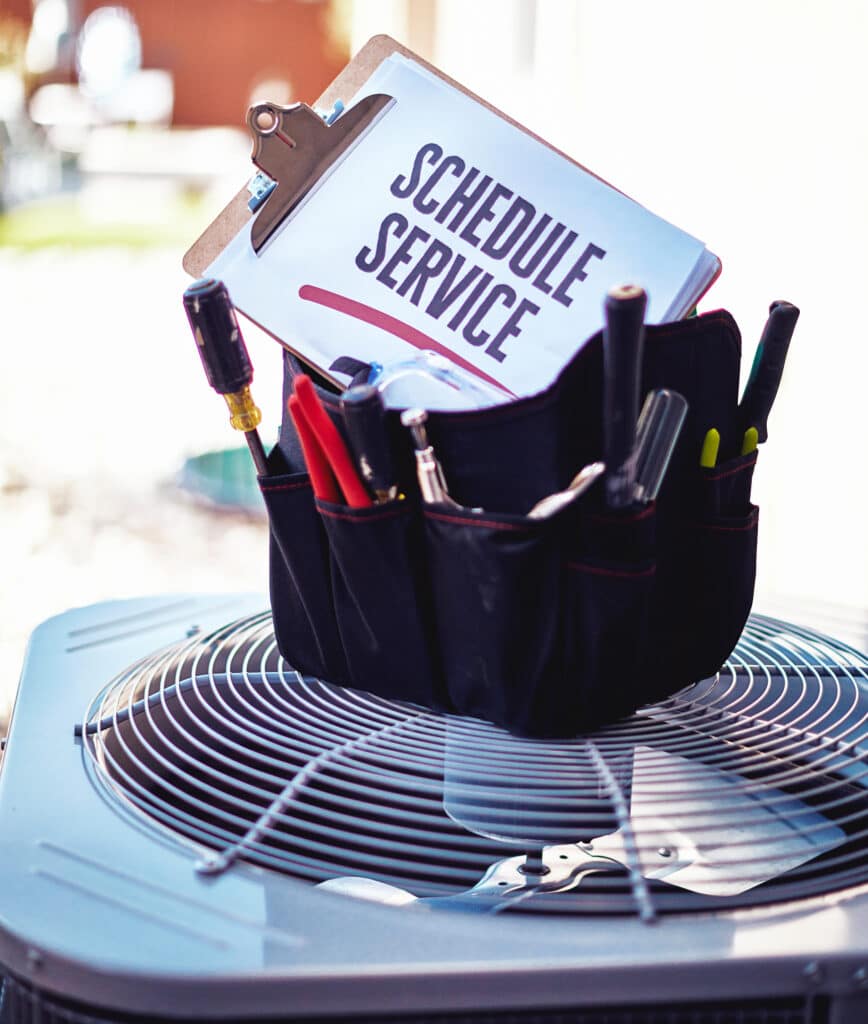
Partnering with One Hour Air Conditioning & Heating of Dallas for Your Residential HVAC Plan
Expertise in HVAC Solutions
When it comes to implementing or upgrading your residential HVAC plan, partnering with a reputable service provider like One Hour Air Conditioning & Heating of Dallas can make all the difference.
With their expertise in HVAC systems, they offer comprehensive services that cover everything from installation to maintenance and repairs, ensuring that your home’s heating and cooling needs are met efficiently and effectively.
Tailored Services for Every Home
One Hour Air Conditioning & Heating of Dallas understands that every home is unique, and so are its HVAC needs.
Whether you reside in Addison, Allen, Carrollton, or any of the other listed locations, their team of experts is equipped to provide tailored solutions that align with your specific requirements. They offer a range of services, including energy-efficient upgrades, system maintenance, and emergency repairs, all designed to enhance the comfort and efficiency of your home.
Local Presence, Trusted Service
With a strong presence in various Texas locations, including Dallas, Frisco, Irving, Lewisville, McKinney, Plano, Richardson, and The Colony, One Hour Air Conditioning & Heating of Dallas is well-positioned to offer prompt and reliable service.
Their local expertise means they’re familiar with the regional climate challenges and can recommend the best HVAC solutions to ensure your home remains comfortable year-round.
Commitment to Customer Satisfaction
One Hour Air Conditioning & Heating of Dallas is committed to delivering exceptional service and ensuring customer satisfaction.
By choosing them for your residential HVAC plan, you’re not just getting a service provider; you’re partnering with a team that values your comfort and strives to provide the best possible solutions for your home.
Their dedication to quality service is reflected in their reviews and ratings, which you can explore through their Google My Business link.
Get in Touch Today
If you’re in any of the mentioned locations and looking to enhance your home’s HVAC system, don’t hesitate to reach out to One Hour Air Conditioning & Heating of Dallas.
Contact them at 469-598-0524 to discuss your HVAC needs and discover how they can assist you in achieving an optimal residential HVAC plan tailored to your home’s specific requirements.
Conclusion
Understanding and implementing a robust residential HVAC plan is pivotal for homeowners seeking comfort, efficiency, and longevity from their heating and cooling systems.
By embracing regular inspections, familiarizing yourself with your system’s specifics, being aware of replacement costs, monitoring energy bills, and understanding warranty details, you can significantly enhance the performance and lifespan of your HVAC system.
Partnering with a trusted service provider like One Hour Air Conditioning & Heating of Dallas can further streamline this process, offering expert guidance and services tailored to your home’s unique needs.
Their local expertise in areas like Addison, TX, Allen, TX, Carrollton, TX, and several others ensures that your residential HVAC plan is in sync with the specific climatic demands of your region, enhancing comfort and efficiency.
Whether you’re considering an upgrade with energy-efficient HVAC solutions, seeking HVAC maintenance tips, or exploring smart HVAC technology, the right approach and professional support can transform your home’s heating and cooling experience.
Remember, a well-planned and maintained HVAC system not only contributes to a comfortable and healthy living environment but also optimizes energy usage, reducing costs and benefiting the environment.

FAQS
-
How does an HVAC system design impact my home’s comfort?
The design of your HVAC system directly affects its efficiency and effectiveness in maintaining a comfortable indoor environment. A well-designed system ensures even temperature distribution, maintains indoor air quality, and operates efficiently.
-
Why is proper HVAC installation important?
Proper installation is crucial for the optimal performance of your HVAC system. It ensures that the system operates efficiently, prevents common issues, and extends the lifespan of your unit.
-
What are the benefits of regular HVAC maintenance?
Regular maintenance keeps your HVAC system running smoothly, prevents major issues, and extends its lifespan. It includes routine checks, cleaning, and necessary repairs.
- How can I make my HVAC system more energy-efficient?
Upgrading to an energy-efficient HVAC system or implementing energy-saving measures can significantly reduce your energy consumption and lower your utility bills. -
How does my HVAC system affect indoor air quality?
Your HVAC system plays a crucial role in maintaining indoor air quality. A well-maintained system can reduce allergens and pollutants, contributing to a healthier living environment.
How has a residential HVAC plan improved your home’s comfort and efficiency? Share your experiences and insights in the comments below!
